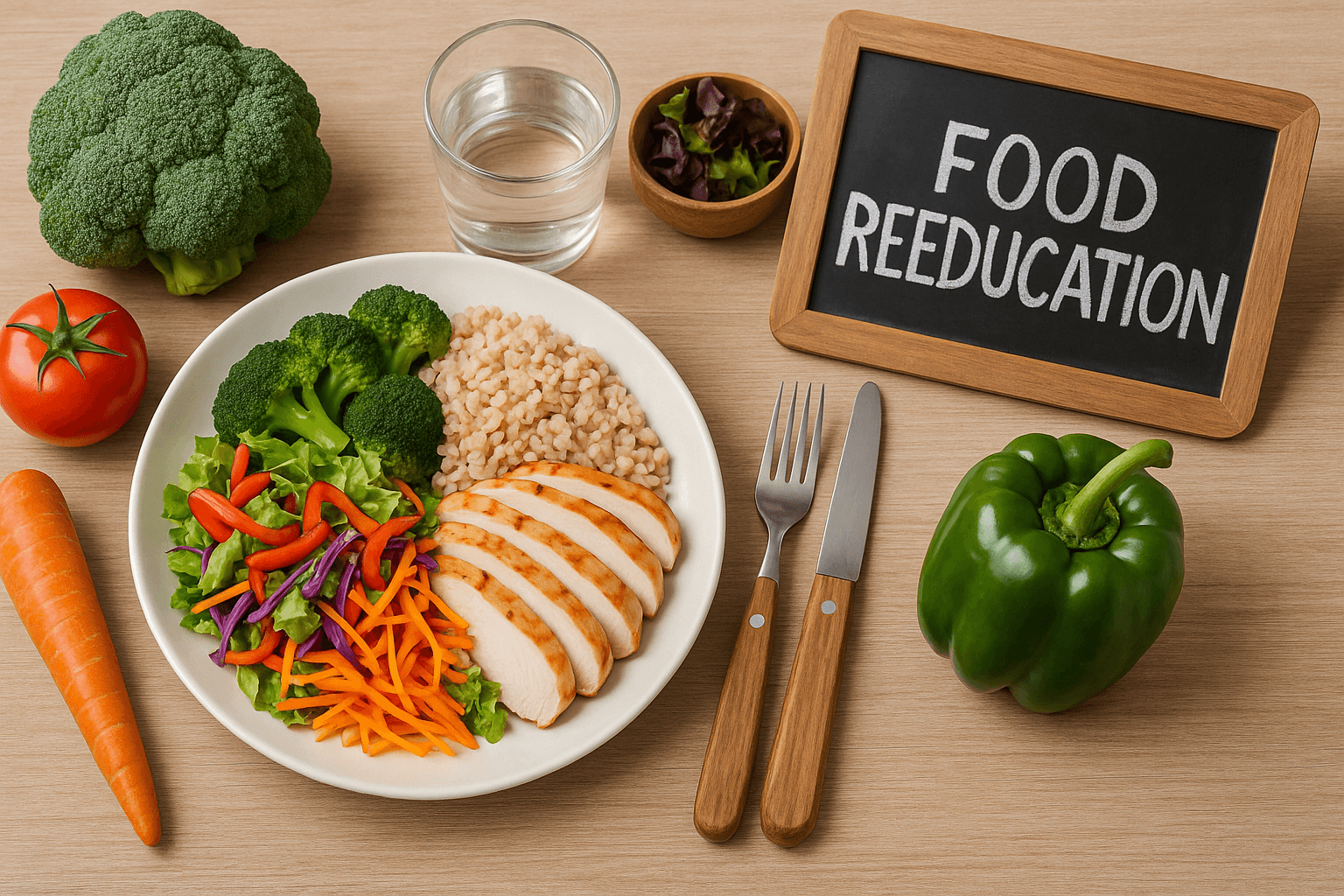Losing weight is a common goal for many people, but achieving it in a healthy and lasting way is often more challenging than it seems. The internet is flooded with extreme diets, miracle products, and unrealistic promises that may lead to frustration, rebound weight gain, or even health issues. In this article, you’ll discover how to start your weight loss journey with simple, safe, and sustainable strategies that can fit into your lifestyle.
Understand Your Motivation
Before changing your eating habits or starting an exercise routine, ask yourself: Why do I want to lose weight?
Your motivation should go beyond appearance. Perhaps you want to feel more energetic, reduce health risks, improve your sleep, or be able to play with your children without getting tired.
Write your reasons down. When motivation wanes — and it will at some point — these notes will remind you why your goal matters.
Set Realistic and Attainable Goals
Healthy weight loss is not about losing 10 pounds in one week. The World Health Organization (WHO) recommends losing 0.5 to 1 kg (1 to 2 pounds) per week as a safe and sustainable pace.
Instead of aiming for a drastic change, focus on short-term goals like:
- Eating vegetables at two meals a day
- Drinking more water
- Walking three times a week
- Cooking at home five times a week
These small wins build your confidence and create a foundation for long-term success.
Start with a Food Diary
One of the best ways to increase awareness of your eating habits is to keep a food diary. Write down everything you eat and drink for 3 to 7 days — no judgment, just observation.
Pay attention to:
- Times of day you eat the most
- Emotional triggers (e.g., boredom, stress)
- Portion sizes
- Snacking habits
You may be surprised by patterns you didn’t realize existed. This insight is crucial to making changes that work for you.
Focus on Whole, Nutrient-Dense Foods
Forget about trendy diets that cut entire food groups. A balanced diet includes:
- Fruits and vegetables: High in fiber, vitamins, and antioxidants
- Whole grains: Brown rice, oats, whole-wheat bread
- Lean proteins: Chicken, fish, eggs, legumes
- Healthy fats: Avocado, nuts, olive oil
Try to limit ultra-processed foods, which often contain added sugars, trans fats, and excess sodium that can hinder your progress.
Don’t Skip Meals — Especially Breakfast
Skipping meals might seem like a shortcut to fewer calories, but it often backfires. People who skip breakfast, for example, may end up eating more throughout the day due to hunger.
A good breakfast could include:
- Oatmeal with banana and peanut butter
- Whole-grain toast with avocado and egg
- Greek yogurt with berries and nuts
Regular meals keep your blood sugar stable, prevent overeating, and support your metabolism.
Move Your Body in a Way You Enjoy
Exercise doesn’t have to mean hitting the gym. The key is consistency and enjoyment. Start with low-impact activities like:

- Walking
- Biking
- Dancing
- Swimming
- Yoga or pilates
Try aiming for at least 150 minutes of moderate activity per week. As your stamina improves, you can gradually increase the duration or intensity.
More learn : Yoga or Pilates
Hydration Matters More Than You Think
Sometimes we confuse thirst with hunger.
Drinking enough water not only prevents this mistake but also supports digestion and energy levels.
Tips to stay hydrated:
- Carry a water bottle with you
- Drink a glass of water before each meal
- Flavor your water with lemon, mint, or cucumber if plain water feels boring
Aim for at least 2 liters (about 8 cups) of water per day, or more if you’re physically active.
Prioritize Sleep and Stress Management
Lack of sleep and high stress levels can sabotage your weight loss efforts. When you’re tired or anxious, your body craves high-calorie comfort foods, and your hormones that regulate hunger (like ghrelin and leptin) become unbalanced.
Simple practices to improve both:
- Keep a consistent sleep schedule
- Avoid screens an hour before bed
- Try meditation, breathing exercises, or journaling
- Take breaks during the day to reset
Even small changes can significantly affect your weight and overall well-being.
Beware of “All-or-Nothing” Thinking
A common mistake in weight loss journeys is the idea that you must be perfect. You ate a piece of cake? That doesn’t mean the day is ruined. One slip doesn’t undo your progress.
Practice flexibility and self-compassion. Progress is never linear — you’ll have ups and downs, and that’s okay. What matters is getting back on track.
Seek Professional Support if Needed
If you’re feeling overwhelmed, confused, or stuck, consider working with:
- A registered dietitian who can create a personalized meal plan
- A personal trainer to guide your fitness routine
- A therapist or coach to help with emotional eating or mindset
Professional support can be a game-changer, especially if you’ve tried and failed in the past.
You Deserve a Journey That Feels Good
Weight loss doesn’t have to feel like punishment. In fact, the more aligned your journey is with your values, preferences, and lifestyle, the more likely you are to succeed — and enjoy the process.
Forget quick fixes. Focus on feeling better, one step at a time.
Building Confidence Through Small Victories
Every glass of water you drink, every walk you take, every home-cooked meal — it all counts. These small actions add up to real, lasting change. You don’t have to overhaul your life overnight. Just begin, keep going, and believe that you’re capable.
You’re not just losing weight. You’re gaining health, energy, and confidence.



